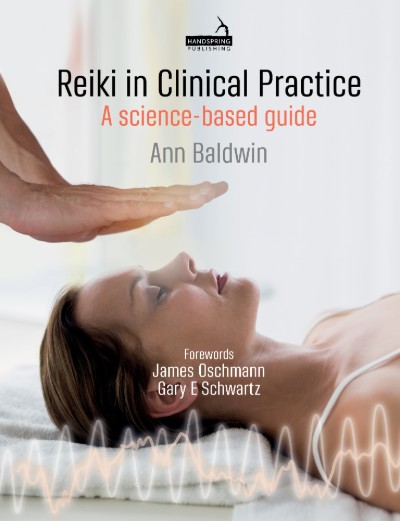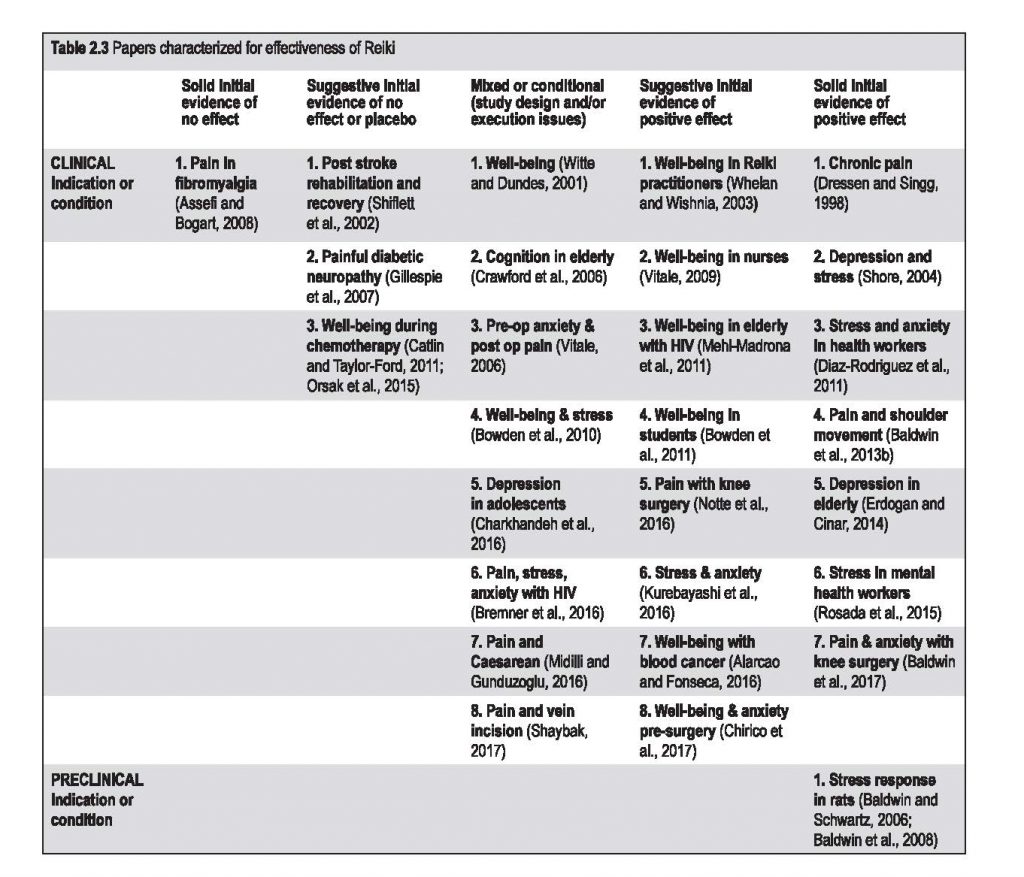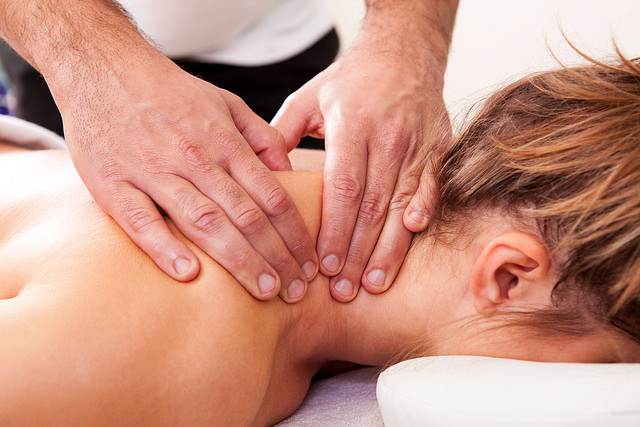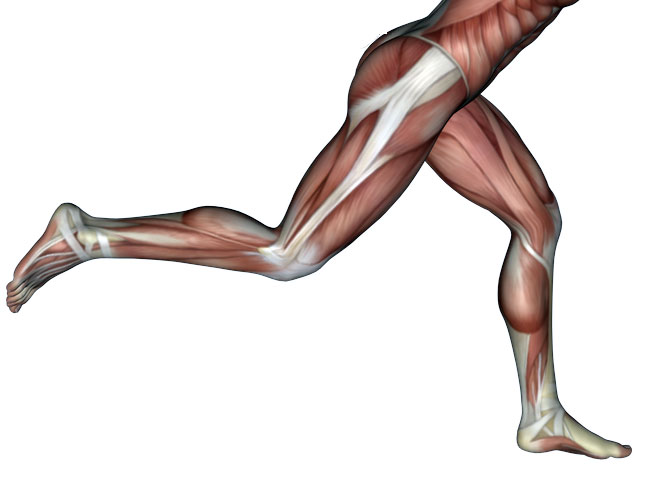Why Should Therapists Trust that Reiki is an Effective Therapy?
Amy Baldwin in Reiki in Clinical Practice provided a review of the current peer-reviewed studies on Reiki. The following article is an excerpt of the book (Handspring Oublishing, 2020), Chapter 2 “Why Should Therapists Trust that Reiki is an Effective Therapy?”
Baldwin and colleagues found 77 peer-reviewed, published Reiki research articles from 1996-2019.
Center for Reiki Research (CRR) (centerforreikiresearch.org) placed 33 of them (including three basic science studies) as high quality studies. The three basic science studies, which will not be discussed here, addressed:
- Physiological changes in energy healers during self-practice (Baldwin and Schwartz, 2012).
- Whether measurable electromagnetic fields are produced by the hands and hearts of Reiki practitioners during practice (Baldwin et al., 2013a).
- Whether the Reiki healing process influences the output of a random number generator in the room used for Reiki (Morse and Beem, 2011).
The other 30 papers that reported the effect of Reiki on clinical indications or conditions are categorized in Table below, according to the demonstrated effectiveness of Reiki.
Table from: Reiki in Clinical Practice (copyright Handspring Publishing, 2020, used with permission)
There was only one solidly negative result (Assefi and Bogart, 2008). This study showed no statistically significant effect of Reiki on fibromyalgia-associated pain levels. This observation suggests that although Reiki intervention may be useful in some settings, it is not universally effective in all clinical indications, as is also the case for more conventional drug treatments. Negative results such as these can be quite helpful in guiding the direction of future controlled studies.
The nine papers that showed solid initial evidence of a positive effect were selected on the basis of one or more of the following criteria:
- Inclusion of sham Reiki group.
- Longer-term study with multiple Reiki treatments.
- Participants blinded as to group they were assigned to.
The eight papers characterized as providing suggestive initial evidence of a positive effect were well designed and demonstrated statistically significant benefits of Reiki but were flawed by one or more of the following problems:
- Low number of participants (20 or fewer).
- Did not include a sham Reiki group.
- Did not demonstrate benefits of Reiki in all measured parameters.
The 17 papers showing solid or suggestive evidence of a positive effect of Reiki were associated with improvements in well-being and alleviation of pain, emotional stress, anxiety and depression.
Although, at first sight, experiments involving people, rather than laboratory animals, may seem more relevant to testing the effectiveness of Reiki in clinical settings, animal experiments do have distinct advantages over human experiments with regard to scientific robustness. Mary Kearns, PhD, psychologist and Reiki Master, contributed an article for the CRR website which addresses this viewpoint: “Conclusion. Does the Reiki Touchstone Process show support of Reiki?”
Perhaps the strongest evidence that Reiki has a demonstrable biological effect comes from the carefully controlled studies on rats by Baldwin and colleagues (2006, 2008; both rated ‘Excellent’). In a laboratory setting, Reiki (performed at a distance from the animals) significantly reduced stress responses relative to sham Reiki. It should not be surprising that animal studies form the strongest indication of Reiki’s effectiveness, as experiments in the laboratory can be designed to control for most variables that would otherwise complicate studies on human subjects. Interestingly, depression and stress were also the two clinical conditions that responded in a significant way to Reiki intervention (Shore, 2004; rated ‘Excellent’), consistent with the preclinical findings of Baldwin. Further evaluation in expanded preclinical and clinical studies on stress, anxiety and depression reduction are therefore warranted.
In summary, well over half of the 30 higher-quality Reiki research studies support Reiki as a healing modality for clinical indications that are among the most common issues experienced by individuals. Evidence for the widespread incidence of problems involving pain, anxiety and depression is presented below.
According to data from the 2012 National Health Interview Survey (NHIS), 11.2% of American adults (25.3 million people) have experienced some form of pain every day for the past three months. Pain is one of the leading reasons Americans turn to complementary health approaches. Evidence of large-scale problems with pain is not just limited to the USA. An article in The British Medical Journal estimates that between a third and half (43%) of the UK population, roughly 28 million adults, live with chronic pain.
There is clearly a great need for a large number of clinical practitioners who are effective at reducing the severity of pain, anxiety and depression in their clients and patients. Based on the peer-reviewed research on the effectiveness of Reiki, which, although limited in extent, is largely positive, it seems that Reiki practitioners can fill this gap.
This article is an excerpt from Reiki in Clinical Practice (copyright Handspring Publishing, 2020). Available at: https://terrarosa.com.au/product/books/energy-therapy-books/reiki-in-clinical-practice/
References on Reiki Studies
Alarcao Z, Fonseca JRS. The effect of Reiki therapy on quality of life of patients with blood cancer results from a randomized controlled trial. European Journal of Integra tive Medicine 2016; 8: 239-249.
Assefi N, Bogart A, Goldberg J, Buchwald D. Reiki for the treatment of fibromyalgia: a randomized, controlled trial. Journal of Alternative and Complementary Medicine 2008; 14(9): lll5-1122.
Baldwin AL, Schwartz GE. Personal interaction with a Reiki practitioner decreases noise-induced microvascular damage in an animal model. Journal of Alternative and Complementary Medicine 2006; 12(1): 15-22.
Baldwin AL, Wagers C, Schwartz GE. Reiki improves heart rate homeostasis in laboratory rats. Journal of Alternative and Complementary Medicine 2008; 14(4): 417-422.
Baldwin AL, Fullmer K, Schwartz GE. Comparison of physical therapy with energy healing for improving range of motion in subjects with restricted shoulder mobility. Evidence-Based Complementary and Alternative Medicine 2013b; 2013: 329731.
Baldwin AL, Vitale A, Brownell E, Rand W. Effects of Reiki on pain, anxiety and blood pressure in knee replacement patients. Holistic Nursing Practice 2017; 31(2): 80-89.
Bowden D, Goddard L, Gruzelier J. A randomized controlled single-blind study of the effects of Reiki and positive imagery on well-being and salivary cortisol. Brain Research Bulletin 2010; 81: 66- 67.
Bowden D, Goddard L, Gruzelier J. A randomized controlled single-blind trial of the efficacy of Reiki at benefitting mood and well-being. Evidence-Based Complementary and Alternative Medicine 2011: 381862.
Bremner MN, Blake BJ, Wagner VD, Pearcy SM. Effects of Reiki with music compared to music only among people living with HIV. Journal of the Association of Nurses in AIDS Care 2016; 27(5): 635-647.
Catlin A, Taylor-Ford RL. Investigation of standard care versus sham Reiki placebo versus actual Reiki therapy to enhance comfort and well-being in a chemotherapy infusion center. Oncology Nursing Forum 2011; 38(3): E212-E220.
Charkhandeh M, Talib, MA, Hunt CJ. The clinical evidence of cognitive behavior therapy and an alternative medicine approach in reducing symptoms of depression in adolescents. Psychiatry Research 2016; 239: 325-330.
Chirico, A, D’Aiuto G, Penon A, Mallia L, De Laurentiis M, Lucidi F, Botti G, Giordano A. Self-efficacy for coping with cancer enhances the effect of Reiki treatments during the pre-surgery phase of breast cancer patients. Anticancer Research 2017; 37(7): 3657-3665.
Crawford SE, Leaver VW, Mahone y SD. Using Reiki to decrease memory and behavior problems in mild cognitive impairment and mild Alzhemier’s Disease. Journal of Alter native and Complementary Medicine 2006; 12(9): 911-913.
Diaz-Rodriguez L, Arroyo-Morales M, Fernandez-de-las Peiias C, Garcia-Lafuente F, Garda-Royo C, Tomas-Rojas. Immediate effects ofReiki on heart rate variability, corti sol levels, and body temperature in health care professionals with burnout. Biological Research for Nursing 2011; 13: 376.
Dressen LJ, Singg S. Effects of Reiki on pain and selected affective and personality variables of chronically ill patients. Subtle Energies & Energy Medicine 1998; 9(1): 53- 82.
Erdogan Z, Cinar S. The effect of Reiki on depression in elderly people living in nursing home. Indian Journal of Traditional Knowledge 2014; 15(1): 35- 40.
Gillespie E, Gillespie B, Stevens M. Painful diabetic neuropathy: impact of an alternative approach. Diabetes Care 2007; 30(4): 999-1001.
Kurebayashi, LFS, Turrini, RNT, Souza, TPB, Takiguchi, RS, Kuba, G, Nagumo, MT. Massage and Reiki used to reduce stress and anxiety: randomized clinical trial. Revis ta Latino-Americana de Enfermagem 2016; 24: e2834.
Mehl-Madrona L, Renfrew NM, Mainguy B. Qualitative assessment of the impact of implementing Reiki training in a supported residence for people older than 50 with HIV. Permanente Journal 2011; 15(3): 43-50.
Midilli TS, Gunduzoglu NC. Effects of Reiki on pain and vital signs when applied to the incision area of the body after Cesarean section surgery. Holistic Nursing Practice 2016; 30(6): 368-378.
Notte BB, Fazzini C, Mooney RA. Reiki’s effect on patient with total knee arthroplasty: A pilot study. Nursing 2016; 46(2):17-23.
Orsak G, Stevens A, Brufsky A, Kajumba M, Dougall AL. The effect of Reiki therapy and companionship on quality of life, mood, and symptom distress during chemotherapy. Evidence-Based Complementary and Alternative Medicine 2015; 20(1): 20-27.
Rosada RM, Rubik B, Mainguy B, Plummer J, Mehl Madrona L. Reiki reduces burnout among community mental health clinicians . Journal of Alternative and Complementary Medicine 2015; 21(8): 489- 495.
Shaybak E. Effects of Reiki energy therapy on saphenous vein incision pain: A randomized clinical trial structure. Der Pharmacy Lettre 2017; 9(1): 100-109. 2017.
Shiflett SC, Nayak S, Bid C, Miles P, Agostinelli S. Effect of Reiki treatments on functional recovery in patients in post-stroke rehabilitation: a pilot study. Journal of Alternative and Complementary Medicine 2002; 8(6): 755-763.
Shore AG. Long-term effects of energetic healing on symptoms of psychological depression and self-perceived stress. Alternative Therapies in Health and Medicine 2004; 10(3): 42-48.
Whelan KM, Wishnia GS. Reiki therapy: the benefits to a nurse/Reiki practitioner. Holistic Nursing Practice 2003; 17(4): 209-217.
Witte D, Dundes L. Harnessing life energy or wishful thinking? Reiki, placebo Reiki, meditation and music. Alternative & Complementary Therapies 2001; 7(5):304-309.
Vitale AT, O’Conner PC. The effect of Reiki on pain and anxiety in women with abdominal hysterectomies. Holistic Nursing Practice 2006; 20(6): 263-272.
Vitale AT. Nurses’ lived experience or Reiki for self care. Holistic Nursing Practice 2009; 23(3): 129-145.



